Stacy Long AFA – Charisma News
"Many people in
Islamic countries, especially young Muslims, are exhausted and
overwhelmed. They are tired. They want to take shelter in a peaceful
belief. But if you do not have peace with God, you will not be able to
have peace with others, no matter how much you would love to. So, with
Christianity, there is an open door for us to touch the hearts of
millions of Muslims all over the world." -Daniel Shayesteh
 "Many times I cried, 'Allah, I want to
kill Christians, I want to kill Jews.' We planned a lot of things, evil
things for the Christian world, cruel things for the Jewish world.
...It is by the grace of God that I am here." (Photo via Charisma News)
"Many times I cried, 'Allah, I want to
kill Christians, I want to kill Jews.' We planned a lot of things, evil
things for the Christian world, cruel things for the Jewish world.
...It is by the grace of God that I am here." (Photo via Charisma News)
 "Many times I cried, 'Allah, I want to
kill Christians, I want to kill Jews.' We planned a lot of things, evil
things for the Christian world, cruel things for the Jewish world.
...It is by the grace of God that I am here." (Photo via Charisma News)
"Many times I cried, 'Allah, I want to
kill Christians, I want to kill Jews.' We planned a lot of things, evil
things for the Christian world, cruel things for the Jewish world.
...It is by the grace of God that I am here." (Photo via Charisma News)
So
begins the testimony of Daniel Shayesteh, formerly an Islamic terrorist
and Iranian revolutionary; now a Christian evangelist.
"I was a famous boy," Shayesteh recalls. "By the age of 9, I was able to do Islamic rituals and recite the Quran."
Picked out from the 12 children of his father's two wives to do Islamic studies from his earliest years, Shayesteh's fame carried him to a position of power among Islamic extremists. With two others he founded Hezbollah, in its earliest days as the revolutionary army in Iran. The army overthrew Mohammed Reza Shah, the king of Iran, in the Islamic Revolution of 1979, and Shayesteh became a political leader helping to institute the rule of Sharia law.
It didn't take long, however, for Shayesteh and other revolutionaries to become dissatisfied with Ayatollah Khomeini, the man they had brought into power to be the country's "Supreme Leader." After Shayesteh's colleague, Abolhassan Beni Sadr, was elected president in 1980, tensions escalated, and in 1989 Khomeini used his influence with Hezbollah to form a military coup against the government with the intent of killing the president. President Sadr and others in his political camp were able to escape the country alive, but Shayesteh was not among them. He was captured and put in prison, which he describes as "a painful place, a place where you beg to die." Even as he waited in a cell on death row, expecting to be executed, God providentially stepped in.
"By the grace of Jesus, I escaped," he says. "Even though I didn't know Him, He had a plan for me."
In an unbelievable and difficult escape, Shayesteh made it to Turkey, where he continued to seek a channel of influence. He enrolled in a university and obtained a doctorate in international management with a thesis on how religions, cultures and philosophies impact the human attitude. Even as he formulated that thesis, the conclusions that forced themselves into his mind startled and unsettled him.
Read the rest of this article at - http://www.breakingchristiannews.com/articles/display_art.html?ID=15789
"I was a famous boy," Shayesteh recalls. "By the age of 9, I was able to do Islamic rituals and recite the Quran."
Picked out from the 12 children of his father's two wives to do Islamic studies from his earliest years, Shayesteh's fame carried him to a position of power among Islamic extremists. With two others he founded Hezbollah, in its earliest days as the revolutionary army in Iran. The army overthrew Mohammed Reza Shah, the king of Iran, in the Islamic Revolution of 1979, and Shayesteh became a political leader helping to institute the rule of Sharia law.
It didn't take long, however, for Shayesteh and other revolutionaries to become dissatisfied with Ayatollah Khomeini, the man they had brought into power to be the country's "Supreme Leader." After Shayesteh's colleague, Abolhassan Beni Sadr, was elected president in 1980, tensions escalated, and in 1989 Khomeini used his influence with Hezbollah to form a military coup against the government with the intent of killing the president. President Sadr and others in his political camp were able to escape the country alive, but Shayesteh was not among them. He was captured and put in prison, which he describes as "a painful place, a place where you beg to die." Even as he waited in a cell on death row, expecting to be executed, God providentially stepped in.
"By the grace of Jesus, I escaped," he says. "Even though I didn't know Him, He had a plan for me."
In an unbelievable and difficult escape, Shayesteh made it to Turkey, where he continued to seek a channel of influence. He enrolled in a university and obtained a doctorate in international management with a thesis on how religions, cultures and philosophies impact the human attitude. Even as he formulated that thesis, the conclusions that forced themselves into his mind startled and unsettled him.
Read the rest of this article at - http://www.breakingchristiannews.com/articles/display_art.html?ID=15789



 (Mexico)
- ISIS is operating a camp just a few miles from El Paso, Texas,
according to Judicial Watch sources that include a Mexican Army field
grade officer and a Mexican Federal Police Inspector. (Photo via popular military)
(Mexico)
- ISIS is operating a camp just a few miles from El Paso, Texas,
according to Judicial Watch sources that include a Mexican Army field
grade officer and a Mexican Federal Police Inspector. (Photo via popular military)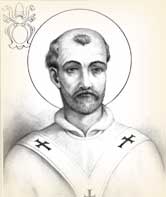 For almost ten months, following the death of Vigilius in June of 555,
the Western church was without a Pope. On March 3, 556, Pelagius, a
Roman of a noble and wealthy family, was chosen to succeed him. The old
man's elevation to the papal throne
For almost ten months, following the death of Vigilius in June of 555,
the Western church was without a Pope. On March 3, 556, Pelagius, a
Roman of a noble and wealthy family, was chosen to succeed him. The old
man's elevation to the papal throne 
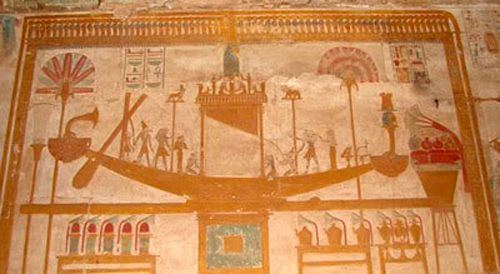



 The clear April night sky was filled with sparkling stars as the
largest and finest steamship in the world sped through the calm seas of
the icy North Atlantic. Many of the passengers had gone to bed, but some
still could be found in the lounges, enjoying the Titanic's
luxury. No one was alarmed by the slight jar felt around 11:15, but many
noticed when they no longer felt the vibrations of the engines.
The clear April night sky was filled with sparkling stars as the
largest and finest steamship in the world sped through the calm seas of
the icy North Atlantic. Many of the passengers had gone to bed, but some
still could be found in the lounges, enjoying the Titanic's
luxury. No one was alarmed by the slight jar felt around 11:15, but many
noticed when they no longer felt the vibrations of the engines.
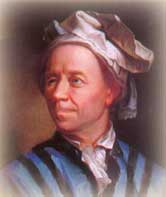 Voltaire and Frederick the Great mocked him; Catherine the Great of
Russia employed him; Mathematicians revere him. His name was Leonhard
Euler. The son of a Protestant minister, Euler was born
Voltaire and Frederick the Great mocked him; Catherine the Great of
Russia employed him; Mathematicians revere him. His name was Leonhard
Euler. The son of a Protestant minister, Euler was born

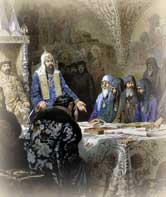 Archpriest Avvakum was appalled. The Russian Orthodox church had an
overbearing new Patriarch, Nikon. This zealot wanted to incorporate into
the liturgy changes borrowed from the Roman church. As Avvakum and many
others saw it, these changes threatened the purity of the old faith.
Their protests were met with appalling cruelty. Tsarevna Sof'ya decreed
that Old Believers were to be tortured. Any who remained
"obstinate" were to be burnt to death.
Archpriest Avvakum was appalled. The Russian Orthodox church had an
overbearing new Patriarch, Nikon. This zealot wanted to incorporate into
the liturgy changes borrowed from the Roman church. As Avvakum and many
others saw it, these changes threatened the purity of the old faith.
Their protests were met with appalling cruelty. Tsarevna Sof'ya decreed
that Old Believers were to be tortured. Any who remained
"obstinate" were to be burnt to death.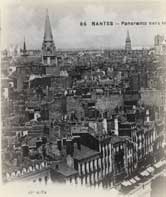 Is it possible for a nation to remain peaceful and united with more
than one variation of Christianity
Is it possible for a nation to remain peaceful and united with more
than one variation of Christianity
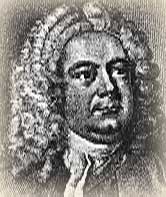 At twelve noon,
At twelve noon, 
 Historians owe a lot to Paul the Deacon. Born into a noble Lombard
family, Paul was given the best possible education for that largely
unschooled day. He became a monk and used his learning to record the
history and myths of his people, the Lombards. His book was one of the
first German histories authored by a German, although even then it was
written in Latin, the language of scholarship. Since most of its sources
have vanished, our knowledge would be poorer without it. It was copied
and recopied into the fifteenth century.
Historians owe a lot to Paul the Deacon. Born into a noble Lombard
family, Paul was given the best possible education for that largely
unschooled day. He became a monk and used his learning to record the
history and myths of his people, the Lombards. His book was one of the
first German histories authored by a German, although even then it was
written in Latin, the language of scholarship. Since most of its sources
have vanished, our knowledge would be poorer without it. It was copied
and recopied into the fifteenth century.




 Among China's millions of Christians, none has been as well known to
the West as Watchman Nee. Many of his books, such as The Normal
Christian Life and Sit, Walk, Stand, reached Western
shores and were printed in English where they were well-received.
Among China's millions of Christians, none has been as well known to
the West as Watchman Nee. Many of his books, such as The Normal
Christian Life and Sit, Walk, Stand, reached Western
shores and were printed in English where they were well-received. Would you revolt over eggplant? In November 1637, Japanese peasants of
the Shimabara peninsula and the Amakusa islands revolted. Afterwards, a
commission looked into the events and concluded that the rebellion
occurred because the Prince of Karatsu was more tyrannical than most. In
addition to the usual taxes, he added surcharges on the poor farmers
which included the best tobacco leaves and numbers of eggplant. To this
unbearable tax burden, he added cruelty and torture, especially of
Christians and their leaders and evangelists.
Would you revolt over eggplant? In November 1637, Japanese peasants of
the Shimabara peninsula and the Amakusa islands revolted. Afterwards, a
commission looked into the events and concluded that the rebellion
occurred because the Prince of Karatsu was more tyrannical than most. In
addition to the usual taxes, he added surcharges on the poor farmers
which included the best tobacco leaves and numbers of eggplant. To this
unbearable tax burden, he added cruelty and torture, especially of
Christians and their leaders and evangelists.